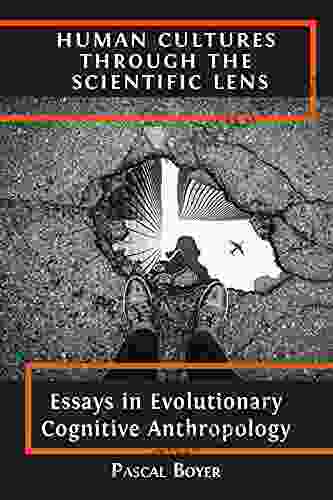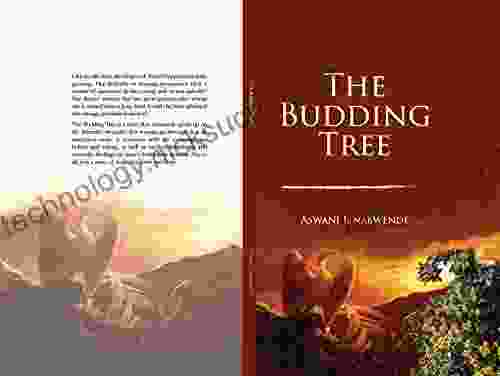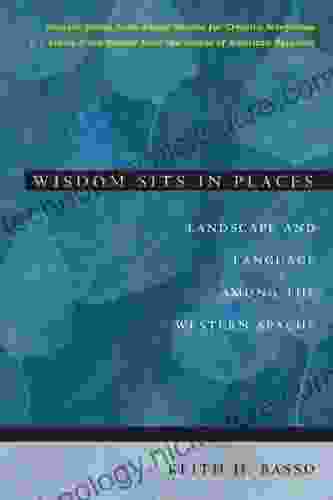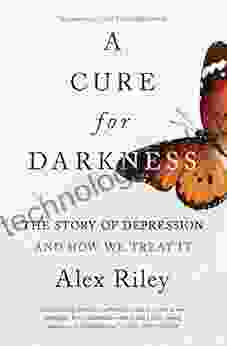Human Cultures Through the Scientific Lens: A Comprehensive Guide

5 out of 5
| Language | : | English |
| File size | : | 3354 KB |
| Text-to-Speech | : | Enabled |
| Screen Reader | : | Supported |
| Enhanced typesetting | : | Enabled |
| Word Wise | : | Enabled |
| Print length | : | 292 pages |
| Lending | : | Enabled |
Human culture is a vast and complex tapestry woven by intricate threads of customs, beliefs, values, and behaviors. It is the sum of our shared knowledge, traditions, and practices that make us who we are. Studying human culture through a scientific lens offers a unique and invaluable perspective, allowing us to unravel the mysteries of our origins, diversity, and evolution.
Cultural Anthropology: The Study of Human Societies
Cultural anthropology is the scientific study of human societies and their cultures. Anthropologists employ a holistic approach, examining all aspects of a culture, including its language, social organization, political systems, economy, and religion. They conduct extensive fieldwork, immersing themselves in the communities they study to gain a deep understanding of their way of life.
Cultural anthropologists have made significant contributions to our understanding of human cultures. They have documented the vast diversity of human societies, from small-scale hunter-gatherers to complex urban civilizations. They have also identified universal features of human culture, such as the family, language, and religion, which suggest a common human nature.
Linguistics: The Science of Language
Linguistics is the scientific study of language. Linguists analyze the structure, meaning, and use of language, seeking to understand how it works and how it shapes our thoughts and experiences. Linguistic research has provided valuable insights into the evolution of human language, the diversity of languages spoken around the world, and the relationship between language and culture.
Linguists have discovered that all languages share certain fundamental features, such as a system of sounds, a grammar, and a vocabulary. They have also identified universals of language, such as the use of pronouns and the distinction between nouns and verbs. These universals suggest that all human languages are products of a common cognitive capacity.
Archaeology: Uncovering the Past
Archaeology is the scientific study of human history through material remains. Archaeologists excavate and analyze artifacts, structures, and landscapes to reconstruct past societies and understand their cultural development. Archaeological research has provided a wealth of information about human origins, the emergence of agriculture, the development of cities, and the rise and fall of civilizations.
Archaeologists have discovered evidence of human culture dating back millions of years. They have found stone tools, pottery, jewelry, and other artifacts that provide insights into the lives of our ancestors. Archaeological research has also shed light on the complex relationship between humans and their environment, and the ways in which culture has shaped the natural world.
Cultural Evolution: The Dynamics of Change
Cultural evolution is the study of how cultures change over time. Cultural anthropologists and archaeologists have developed various theories to explain the dynamics of cultural change, including cultural diffusion, cultural ecology, and cultural materialism. These theories provide a framework for understanding how cultures adapt to new environments, interact with other cultures, and develop new technologies and social institutions.
Cultural evolution is a complex and ongoing process. It is influenced by a variety of factors, including environmental changes, technological innovations, and social conflicts. Cultural evolution has led to the emergence of a wide range of human cultures, each with its own unique characteristics and adaptations.
Cultural Diversity: A Tapestry of Difference
Human cultures are remarkably diverse. There are over 7,000 languages spoken around the world, and each language represents a unique way of thinking about the world. Cultures vary in their social organization, political systems, economic practices, and religious beliefs. This diversity is a testament to the adaptability and creativity of the human species.
Cultural diversity is a source of both strength and conflict. It can lead to new ideas and innovations, but it can also lead to misunderstanding and prejudice. Cultural relativism, the principle that cultures should be understood on their own terms, is essential for fostering tolerance and understanding between different cultures.
Cross-Cultural Research: Bridging the Gap
Cross-cultural research is the study of similarities and differences between cultures. It seeks to understand how cultural factors influence human behavior, cognition, and emotion. Cross-cultural research has helped to identify cultural universals, such as the importance of family and the desire for meaning, as well as cultural differences, such as variations in parenting styles and conceptions of beauty.
Cross-cultural research is essential for promoting cultural understanding and cooperation. It can help to reduce prejudice, foster empathy, and build bridges between different cultures. By understanding the diversity of human cultures, we can better appreciate our own culture and the cultures of others.
The scientific study of human cultures provides a unique and invaluable perspective on our origins, diversity, and evolution. Cultural anthropology, linguistics, archaeology, and other disciplines have made significant contributions to our understanding of human culture. By studying cultures through a scientific lens, we can better appreciate the richness and complexity of human experience.
The scientific study of human cultures is also essential for addressing the challenges facing our world today. By understanding the diversity of human cultures, we can better promote tolerance, foster cooperation, and build a more just and equitable world.
5 out of 5
| Language | : | English |
| File size | : | 3354 KB |
| Text-to-Speech | : | Enabled |
| Screen Reader | : | Supported |
| Enhanced typesetting | : | Enabled |
| Word Wise | : | Enabled |
| Print length | : | 292 pages |
| Lending | : | Enabled |
Do you want to contribute by writing guest posts on this blog?
Please contact us and send us a resume of previous articles that you have written.
 Fiction
Fiction Non Fiction
Non Fiction Romance
Romance Mystery
Mystery Thriller
Thriller SciFi
SciFi Fantasy
Fantasy Horror
Horror Biography
Biography Selfhelp
Selfhelp Business
Business History
History Classics
Classics Poetry
Poetry Childrens
Childrens Young Adult
Young Adult Educational
Educational Cooking
Cooking Travel
Travel Lifestyle
Lifestyle Spirituality
Spirituality Health
Health Fitness
Fitness Technology
Technology Science
Science Arts
Arts Crafts
Crafts DIY
DIY Gardening
Gardening Petcare
Petcare Brent Herrick
Brent Herrick Q S Khan
Q S Khan Elena Zotova
Elena Zotova Stan Utley
Stan Utley Alex Mars
Alex Mars Kingsley Amis
Kingsley Amis Barbara Ehrenreich
Barbara Ehrenreich Christie Cognevich
Christie Cognevich Paul Sating
Paul Sating Kevin Bales
Kevin Bales Alex Bezzerides
Alex Bezzerides Loriann Oberlin
Loriann Oberlin Anne Bogel
Anne Bogel Linda White
Linda White Peter Galison
Peter Galison Martin Baldridge
Martin Baldridge Charlene L Edge
Charlene L Edge Kristin Gambaccini
Kristin Gambaccini Elon Vidal
Elon Vidal Michael Digiacomo
Michael Digiacomo Rajesh K Naz
Rajesh K Naz Sophie David
Sophie David Bruce Johnson
Bruce Johnson Heather Dale
Heather Dale Leonhard Euler
Leonhard Euler Yang Erche Namu
Yang Erche Namu Jennifer Kramer
Jennifer Kramer Elizabeth White
Elizabeth White Teresa Denton
Teresa Denton John Kretschmer
John Kretschmer Eli Burakian
Eli Burakian Alexander Mccall Smith
Alexander Mccall Smith James Suzman
James Suzman Roy Plotnick
Roy Plotnick Scott L Smith
Scott L Smith Donnie Eichar
Donnie Eichar Michael Thompson
Michael Thompson Thomas Sowell
Thomas Sowell Mauricio Fau
Mauricio Fau Donald D Hoffman
Donald D Hoffman Sarah Lynne Bowman
Sarah Lynne Bowman Alberto Villoldo
Alberto Villoldo Oluwaseun Ajayi
Oluwaseun Ajayi Raj Kumar
Raj Kumar George E Vaillant
George E Vaillant Otto Kroeger
Otto Kroeger Philip Ball
Philip Ball Jennifer Cohen Harper
Jennifer Cohen Harper Alberta Hawse
Alberta Hawse Thomas Huhti
Thomas Huhti Pedro Domingos
Pedro Domingos Alex Zimmerman
Alex Zimmerman Katherine Leigh
Katherine Leigh Fretta Reitzes
Fretta Reitzes Sabine Hossenfelder
Sabine Hossenfelder Suzanne Collins
Suzanne Collins Kent David Kelly
Kent David Kelly Sabbithry Persad Mba
Sabbithry Persad Mba Margaret Rooke
Margaret Rooke Michael Sandler
Michael Sandler P J Agness
P J Agness David Thomas
David Thomas Phil Pierce
Phil Pierce Carla Naumburg
Carla Naumburg Albert Hofmann
Albert Hofmann Daniel Shapiro
Daniel Shapiro Jon Krakauer
Jon Krakauer Sam Jalloh
Sam Jalloh Christina Riggs
Christina Riggs Lyn Kelley
Lyn Kelley Walter Gretzky
Walter Gretzky Howard Carter
Howard Carter Vanessa Van Edwards
Vanessa Van Edwards Alfred P Rovai
Alfred P Rovai Harold Klemp
Harold Klemp Chanice Lee
Chanice Lee Laura Eckert
Laura Eckert Larry Pardey
Larry Pardey Jennifer Van Allen
Jennifer Van Allen Douglas Doman
Douglas Doman Aman Gupta
Aman Gupta Alexander Boxer
Alexander Boxer Kathryn Purdie
Kathryn Purdie River
River Aaron Reynolds
Aaron Reynolds Diana L Paxson
Diana L Paxson Phyllis Good
Phyllis Good Pascal Boyer
Pascal Boyer Amy Newmark
Amy Newmark Linda Egenes
Linda Egenes Rebecca Schrag Hershberg
Rebecca Schrag Hershberg Hadley Wickham
Hadley Wickham Megan Carle
Megan Carle Rebecca Wilson
Rebecca Wilson Dipika Mukherjee
Dipika Mukherjee Jim Davidson
Jim Davidson Olivia Wildenstein
Olivia Wildenstein Meredith Atwood
Meredith Atwood David N Myers
David N Myers C C Hunter
C C Hunter Bill Haggerty
Bill Haggerty Fataniss Store
Fataniss Store Ellen Snortland
Ellen Snortland Keith H Basso
Keith H Basso Albert Rutherford
Albert Rutherford Robert Benson
Robert Benson Gabriyell Sarom
Gabriyell Sarom Sally Moomaw
Sally Moomaw Jennet Conant
Jennet Conant Aubrey Sherman
Aubrey Sherman Mary Lynne Fernandez
Mary Lynne Fernandez Julie Berry
Julie Berry Hal Higdon
Hal Higdon Catherine Dawson
Catherine Dawson Sareen S Gropper
Sareen S Gropper Alex Wade
Alex Wade Marvin Harris
Marvin Harris Peter J Feibelman
Peter J Feibelman Alex Morgan
Alex Morgan Douglas D Scott
Douglas D Scott Peter Brown
Peter Brown Beverleigh H Piepers
Beverleigh H Piepers Suzie Sheehy
Suzie Sheehy Roseanne A Brown
Roseanne A Brown Geza Vermes
Geza Vermes Robbie Couch
Robbie Couch Zach Davis
Zach Davis Mark Warren
Mark Warren Sarah Ockwell Smith
Sarah Ockwell Smith Peter Maguire
Peter Maguire Alexander Ferrauti
Alexander Ferrauti Kathleen Mcmillan
Kathleen Mcmillan Sky Marsen
Sky Marsen Alex Hibbert
Alex Hibbert Olivier Doleuze
Olivier Doleuze Lisa Silverman
Lisa Silverman Vimla L Patel
Vimla L Patel Dan Jacob
Dan Jacob Theodore X O Connell
Theodore X O Connell Todd Denault
Todd Denault Deborah L Davis
Deborah L Davis Saxon Andrew
Saxon Andrew Alexander Meyer
Alexander Meyer J C Herz
J C Herz Luis Angel Echeverria
Luis Angel Echeverria Ben Ainslie
Ben Ainslie Will Hart
Will Hart Tiffany Dionne
Tiffany Dionne Andrew Zerling
Andrew Zerling Joe Nobody
Joe Nobody Alexander Jones
Alexander Jones Michael Clary
Michael Clary Janja Lalich
Janja Lalich Saunders Mac Lane
Saunders Mac Lane Patrick Taylor
Patrick Taylor Dan Gookin
Dan Gookin Jacqueline Tourville
Jacqueline Tourville Alex Guarnaschelli
Alex Guarnaschelli Catherine Crier
Catherine Crier Janine Marsh
Janine Marsh Paul Trammell
Paul Trammell Arshay Cooper
Arshay Cooper Terry Marsh
Terry Marsh Conn Iggulden
Conn Iggulden Laura Morton Rd
Laura Morton Rd Earl Swift
Earl Swift Mark Golds
Mark Golds Marilynn Hughes
Marilynn Hughes James Johonnot
James Johonnot Nate Silver
Nate Silver Steve Bechtel
Steve Bechtel Sally Huss
Sally Huss Austin Murphy
Austin Murphy Lake E High
Lake E High Patrick F Mcmanus
Patrick F Mcmanus Jeff Galloway
Jeff Galloway David Shinar
David Shinar Sara Shepard
Sara Shepard Danielle Tumminio Hansen
Danielle Tumminio Hansen Jerry C Whitaker
Jerry C Whitaker Steve Helling
Steve Helling Taylor Harris
Taylor Harris Alex Pentland
Alex Pentland Anna Post
Anna Post Kyle Rohrig
Kyle Rohrig Alexander Clarke
Alexander Clarke Eric Zandona
Eric Zandona Moh Kolli Carnet
Moh Kolli Carnet Jenny Mackay
Jenny Mackay Janie B Butts
Janie B Butts Fridtjof Nansen
Fridtjof Nansen Milan Yerkovich
Milan Yerkovich Robert Spindler
Robert Spindler Lynn Alley
Lynn Alley Alex J Gutman
Alex J Gutman William R Short
William R Short John Boyette
John Boyette Angelo Tropea
Angelo Tropea Karen Casey
Karen Casey Ruth Minsky Sender
Ruth Minsky Sender Scott Fratcher
Scott Fratcher Cary Nemeroff
Cary Nemeroff Derek Lundy
Derek Lundy Simon Monk
Simon Monk L R Trovillion
L R Trovillion Tim Cahill
Tim Cahill Howard Schor
Howard Schor Jacob Sannox
Jacob Sannox Winona Guo
Winona Guo Celeste Headlee
Celeste Headlee Alex Light
Alex Light Alexa Nicole Cucchiara
Alexa Nicole Cucchiara Molly Knox Ostertag
Molly Knox Ostertag Joan Wulff
Joan Wulff Sarah Franklin
Sarah Franklin Sarah Stewart Johnson
Sarah Stewart Johnson Suzanna Mcgee
Suzanna Mcgee Robert Dos Remedios
Robert Dos Remedios Hannah Arendt
Hannah Arendt Jeana Jorgensen
Jeana Jorgensen Graham Hancock
Graham Hancock Tracy Brown Collins
Tracy Brown Collins Tetsu Kariya
Tetsu Kariya Mark Sisson
Mark Sisson Kieran Mccarthy
Kieran Mccarthy Phil Keith
Phil Keith Peter Collier
Peter Collier Stephan Martin
Stephan Martin David Farrier
David Farrier Don Pitcher
Don Pitcher Willard A Palmer
Willard A Palmer Katrina M Adams
Katrina M Adams Scott Kelly
Scott Kelly Morgan Lyle
Morgan Lyle George Marshall
George Marshall George Ehrenhaft
George Ehrenhaft Peter Matthiessen
Peter Matthiessen Lara S Ormiston
Lara S Ormiston David G Kleinbaum
David G Kleinbaum John Burroughs
John Burroughs David Leadbetter
David Leadbetter Alicia Ranoldo
Alicia Ranoldo Deirdre Martin
Deirdre Martin Phil Jarratt
Phil Jarratt Ernest T Stringer
Ernest T Stringer Nikki Nichols
Nikki Nichols Alex Itsios
Alex Itsios Ernest Hemingway
Ernest Hemingway Michele Filgate
Michele Filgate Alex Boese
Alex Boese Ash Perrin
Ash Perrin Hannah V Holmes
Hannah V Holmes Lisa Manterfield
Lisa Manterfield Alexandra Bracken
Alexandra Bracken Brigid Kemmerer
Brigid Kemmerer Judy Dutton
Judy Dutton Stephen R Lawhead
Stephen R Lawhead Audra Fordin
Audra Fordin Robert W Winters
Robert W Winters Elissa Wall
Elissa Wall Alex Riley
Alex Riley Tim Moore
Tim Moore Jenna Gottlieb
Jenna Gottlieb Andrew Stellman
Andrew Stellman Gary Coleman
Gary Coleman Richard D Easton
Richard D Easton Richard Cole
Richard Cole Alessandro Valerani
Alessandro Valerani Albert S Tarendash
Albert S Tarendash Derrick Niederman
Derrick Niederman Devin Devasquez
Devin Devasquez Peter Ross
Peter Ross Paul Volponi
Paul Volponi Yannis Detorakis
Yannis Detorakis Lonely Planet
Lonely Planet Diana Hopkins
Diana Hopkins David N Schwartz
David N Schwartz Katie Edwards
Katie Edwards Albert J Raboteau
Albert J Raboteau Mine Dogucu
Mine Dogucu Anatoli Boukreev
Anatoli Boukreev Erin Bowe
Erin Bowe Tony Roig
Tony Roig Steve Warner
Steve Warner Chukwuma Eleodimuo
Chukwuma Eleodimuo David L Demets
David L Demets Brent Zwerneman
Brent Zwerneman Evan F Moore
Evan F Moore Travis Eliot
Travis Eliot Brad Borkan
Brad Borkan Darl Kuhn
Darl Kuhn F T Lukens
F T Lukens Kalynn Bayron
Kalynn Bayron Alda Sigmundsdottir
Alda Sigmundsdottir Victoria Wilson
Victoria Wilson Game Spark
Game Spark Aleister Crowley
Aleister Crowley Hiro Ainana
Hiro Ainana Alex Wolf
Alex Wolf Don Bendell
Don Bendell C J Brown
C J Brown Stephen Wilbers
Stephen Wilbers Georgiann Davis
Georgiann Davis Leigh Hatts
Leigh Hatts Kevin Mcaleer
Kevin Mcaleer J Richard Hackman
J Richard Hackman Kinsey Phifer
Kinsey Phifer Michael Terry
Michael Terry Anne Dachel
Anne Dachel Alexander Mackenzie
Alexander Mackenzie John Stage
John Stage Matt Johanson
Matt Johanson Ari Mennander
Ari Mennander S Kelley Harrell
S Kelley Harrell Michele Gelfand
Michele Gelfand Michael Steven
Michael Steven Jason R Rich
Jason R Rich Alex Harris
Alex Harris Jules Wake
Jules Wake Bertus Engelbrecht
Bertus Engelbrecht Caren Cooper
Caren Cooper Bob Palmer
Bob Palmer Emma Hansen
Emma Hansen Alexander L Co
Alexander L Co Arieh Ben Naim
Arieh Ben Naim Dr Rebecca Harwin
Dr Rebecca Harwin Wesley Bernardini
Wesley Bernardini Alejandro Portes
Alejandro Portes Gary Nicol
Gary Nicol Phil Hanrahan
Phil Hanrahan Stephen K Hayes
Stephen K Hayes Ben Malisow
Ben Malisow Matthew Johnson
Matthew Johnson Glenn Rivers
Glenn Rivers Kevin Gallagher
Kevin Gallagher David Borgenicht
David Borgenicht Qaiser Feroze
Qaiser Feroze Mark Reed
Mark Reed Alexa Whitewolf
Alexa Whitewolf Denny Matthews
Denny Matthews Holly Black
Holly Black W C Mcrae
W C Mcrae Richard M Foxx
Richard M Foxx Mark Creasy
Mark Creasy Laura Pavlov
Laura Pavlov Jimmy Connors
Jimmy Connors Kirsten Koza
Kirsten Koza Ken Schultz
Ken Schultz Phil Gaimon
Phil Gaimon Aaron Robinet
Aaron Robinet Itzhak Bentov
Itzhak Bentov Stephon Alexander
Stephon Alexander Kortney Keisel
Kortney Keisel Gordon Rugg
Gordon Rugg John Thorne
John Thorne Rachael Ray
Rachael Ray Alan Lightman
Alan Lightman Alex Reinhart
Alex Reinhart Wallace Wang
Wallace Wang Chip Heath
Chip Heath John Quick
John Quick Alistair Moffat
Alistair Moffat Jim Hynes
Jim Hynes Robert Penn
Robert Penn Albert Ellis
Albert Ellis Daniel L Everett
Daniel L Everett Chuck Norris
Chuck Norris Eric R Kandel
Eric R Kandel Scott Whitlock
Scott Whitlock Robert L Wolke
Robert L Wolke Alfie Kohn
Alfie Kohn Nancy Silverton
Nancy Silverton Pekka Louhiala
Pekka Louhiala Duncan Wells
Duncan Wells Jennifer Estep
Jennifer Estep Russ Unger
Russ Unger Cecil B Hartley
Cecil B Hartley Victoria Schwab
Victoria Schwab Titania Hardie
Titania Hardie Brett Cohen
Brett Cohen Josh Bryant
Josh Bryant Daniel Pautrat
Daniel Pautrat Idan Ravin
Idan Ravin Danielle Paige
Danielle Paige Jennifer Boyle
Jennifer Boyle Daniel Defoe
Daniel Defoe G Blake Meike
G Blake Meike Jerry C Zee
Jerry C Zee Albert W A Schmid
Albert W A Schmid Kristen Jane Anderson
Kristen Jane Anderson Namita Prasad
Namita Prasad Stephen L Sass
Stephen L Sass Richard Shotton
Richard Shotton Genese Marie Sodikoff
Genese Marie Sodikoff Michael Teitelbaum
Michael Teitelbaum L Michele Issel
L Michele Issel Robertson Tait
Robertson Tait Alex Polyakov
Alex Polyakov Garth Nix
Garth Nix Alex Hunter
Alex Hunter Alex Gillis
Alex Gillis Brian Beffort
Brian Beffort Margaret Willson
Margaret Willson Gabriel Levy
Gabriel Levy Celia Hodent
Celia Hodent Alex Bellos
Alex Bellos Dr Yvonne S Thornton
Dr Yvonne S Thornton Aleksandr Anufriyev
Aleksandr Anufriyev Ralph Vacchiano
Ralph Vacchiano Dennis R Helsel
Dennis R Helsel Marian Dewane
Marian Dewane Scott Turansky
Scott Turansky Pittacus Lore
Pittacus Lore Julian B Barbour
Julian B Barbour Julia Wertz
Julia Wertz Gail M Nelson
Gail M Nelson Chris Englert
Chris Englert Alex J Packer
Alex J Packer Nate Orlowek
Nate Orlowek Martha Sears
Martha Sears Alessio Mangoni
Alessio Mangoni Fiaz Rafiq
Fiaz Rafiq Mia King
Mia King R K Gupta
R K Gupta Richard Ronald
Richard Ronald Amber Lia
Amber Lia Rough Guides
Rough Guides Darin Ingels
Darin Ingels Alex Banks
Alex Banks Steve Flink
Steve Flink K D Hume
K D Hume Duncan Butchart
Duncan Butchart Gigi Georges
Gigi Georges Pamela K Lamb
Pamela K Lamb Chella Man
Chella Man Henrik Beyer
Henrik Beyer Eric Enge
Eric Enge Jon B Gould
Jon B Gould Jase Robertson
Jase Robertson Gf Denehy
Gf Denehy Mary Ellen Hannibal
Mary Ellen Hannibal Eric Mason
Eric Mason Gordon Feinberg
Gordon Feinberg Upgraded Brain
Upgraded Brain Thomas Cahill
Thomas Cahill Albert Marrin
Albert Marrin Stormie Omartian
Stormie Omartian Stephanie Ermenegild
Stephanie Ermenegild Ron Mckeefery
Ron Mckeefery Greg Michaelson
Greg Michaelson Scott Butler
Scott Butler Patrick Alan Danaher
Patrick Alan Danaher Alexander Bennett
Alexander Bennett Shannon Jett
Shannon Jett Amanda Epperson
Amanda Epperson Victor Davis Hanson
Victor Davis Hanson Thomas Jaden
Thomas Jaden Sam Sheridan
Sam Sheridan David J Chalmers
David J Chalmers Vasti Torres
Vasti Torres Ashton Cartwright
Ashton Cartwright Sheryl Buckland
Sheryl Buckland Cosmic Kids Publications
Cosmic Kids Publications Philip Wylie
Philip Wylie Nancy Marie Brown
Nancy Marie Brown Soo Kim Abboud
Soo Kim Abboud Stanley Cohen
Stanley Cohen Dan Purser Md
Dan Purser Md Alex Johnson
Alex Johnson James Patterson
James Patterson Jeremy Kubica
Jeremy Kubica
Light bulbAdvertise smarter! Our strategic ad space ensures maximum exposure. Reserve your spot today!

 Henry David ThoreauThe Really Big Tennis Lessons: Learn the Game from the Ground Up with This...
Henry David ThoreauThe Really Big Tennis Lessons: Learn the Game from the Ground Up with This... Harry CookFollow ·8.1k
Harry CookFollow ·8.1k Ricky BellFollow ·11.9k
Ricky BellFollow ·11.9k Stephen KingFollow ·17.3k
Stephen KingFollow ·17.3k Ralph Waldo EmersonFollow ·7.7k
Ralph Waldo EmersonFollow ·7.7k Scott ParkerFollow ·15.6k
Scott ParkerFollow ·15.6k Luke BlairFollow ·4.6k
Luke BlairFollow ·4.6k David BaldacciFollow ·10.6k
David BaldacciFollow ·10.6k Gerald ParkerFollow ·10.9k
Gerald ParkerFollow ·10.9k

 Jeffrey Cox
Jeffrey CoxEasy Recipes And Meal Plans For Healthy Pregnancy
Congratulations on...

 Andy Cole
Andy ColeDive into the Fiery Ordeal and Mockingjay's Rebellion: An...
: A Captivating Dystopian Saga The...

 Ernest Powell
Ernest PowellLore Alexandra Bracken: Unveiling the Mastermind Behind...
: In the vast expanse of contemporary...

 T.S. Eliot
T.S. EliotThe Story of the Invention of the Typewriter: 150 Years...
The typewriter, a...
5 out of 5
| Language | : | English |
| File size | : | 3354 KB |
| Text-to-Speech | : | Enabled |
| Screen Reader | : | Supported |
| Enhanced typesetting | : | Enabled |
| Word Wise | : | Enabled |
| Print length | : | 292 pages |
| Lending | : | Enabled |














